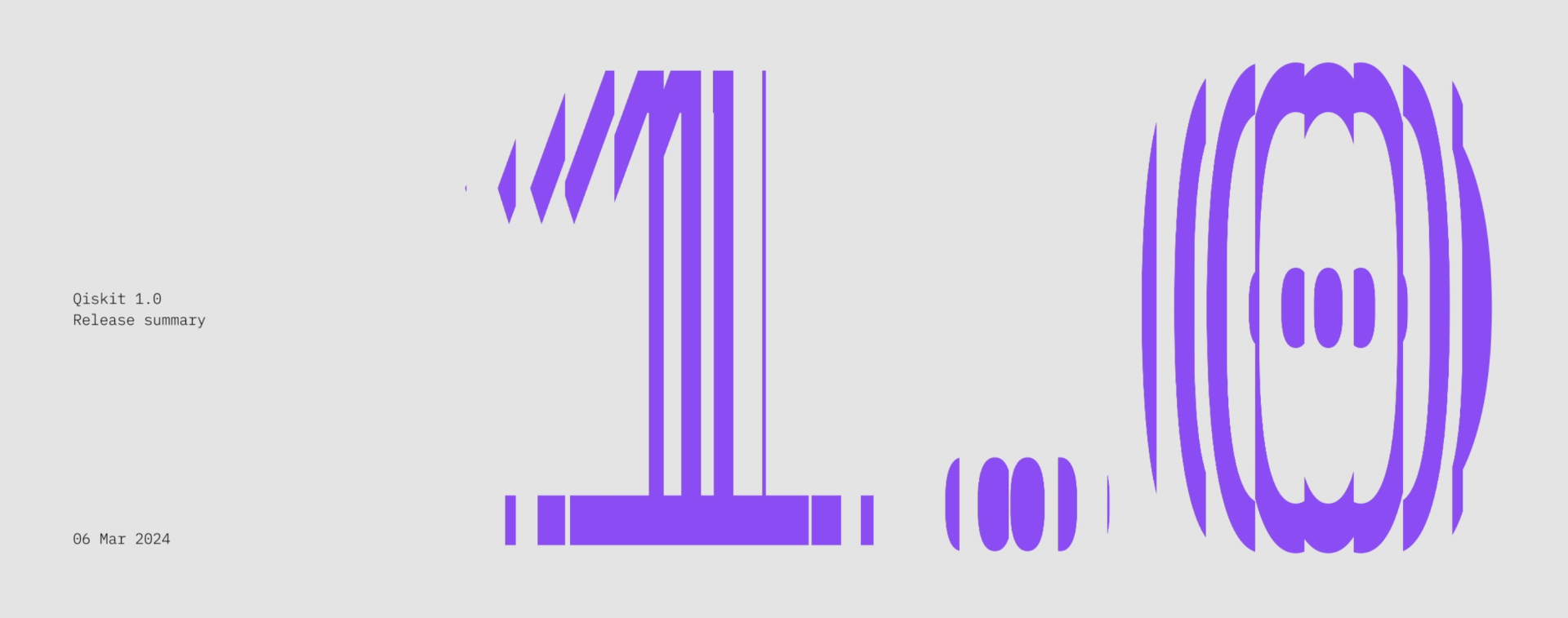Qiskit 1.0, a quantum computing software development kit, has been released. The new version focuses on performance, stability, and usability. It includes improvements to overall performance, a more stable API, a leaner set of libraries, and an SDK built for an open-source ecosystem.
The release also introduces a redesign of the Sampler and Estimator primitives in the core SDK and a new release of Qiskit Runtime. Other features include an experimental native OpenQASM 3 parser, a generic fake backend module, and a release lifecycle with more stability. The transition to Qiskit 1.0 also means Qiskit’s development cycle is changing, with at least one year between significant releases.
Qiskit 1.0: A New Chapter in Quantum Programming
The full Qiskit Software Development Kit (SDK) 1.0 release is now available for installation via PyPI. This release marks a significant milestone in the history of quantum programming, focusing on performance, stability, and usability.
Qiskit 1.0 introduces several key enhancements, including a more performant SDK, a more stable API, a leaner set of libraries, and an SDK built for an open-source ecosystem.
Qiskit has significantly improved its overall performance over the past 18 months. The 1.0 release enables users to quickly build and transpile circuits with 100+ qubits, laying the groundwork for future 1,000+ qubit workloads.
With the launch of Qiskit 1.0, a new, more stable release cycle has been introduced, along with updated versioning support. This means less frequent breaking changes and more robust backwards-compatibility and bug support.
The core features of Qiskit have been consolidated and focused by removing the metapackage architecture and splitting out several modules into separate packages. This allows for greater focus on stability and maintainability while enabling the wider open-source community to contribute new features.
The transpiler plugin interface and the broader Qiskit Ecosystem program are designed to encourage scientists, engineers, and software developers to build new extensions of Qiskit’s core capabilities, advancing the field of quantum computing.
One of the biggest changes in Qiskit 1.0 is a redesign of the Sampler and Estimator primitives in the core SDK, as well as a new release of Qiskit Runtime that implements these updated definitions. These interfaces play an essential role in enabling users to interact with quantum hardware through Qiskit. The new primitives, SamplerV2 and EstimatorV2, are designed to accept vectorized inputs, allowing users to perform sweeps over parameter value sets and observables, making the collection of results from many combinations of circuits, expectation values, and parameters much easier.
Qiskit now offers an experimental native OpenQASM 3 parser to dump and load ‘QuantumCircuit’ objects. The parser has been overhauled and written in Rust, giving users the ability to load OpenQASM 3 instructions significantly faster.
The 1.0 release includes a new GenericBackendV2 class within the qiskit.providers.fake_provider module. This new class allows users to easily configure and build custom BackendV2 instances that can be run locally. The number of qubits, the coupling map, the basis gates, the instruction calibrations, the ability to run dynamic circuits, and the measurement timestep can all be customized without manually constructing a Target object.
The transition to Qiskit 1.0 also means Qiskit’s development cycle is changing. Instead of the frequent breaking changes of the 0.* era, there will now be a minimum of one year between major releases, and minor version releases will continue to occur as usual at a rate of once every three months.
Qiskit 1.0 comes with some hefty memory and performance improvements. Many features in Qiskit 1.0 are much faster now than they were in the past, due in large part to ongoing internal refactoring and the introduction of Rust code under the hood.
The 1.0 release includes several breaking changes that could cause users’ existing code to break when updating to this latest version. These changes were motivated by a push to clean up and create a “leaner,” more trimmed-down Qiskit.
Installing Qiskit 1.0 is as simple as installing pip install qiskit for new users. For existing users, the situation is a bit more complicated due to the new packaging structure. Users will need to create a new conda/pip/poetry environment and add the dependency either as qiskit or qiskit>=1.0 to use the 1.0 release.
The release of Qiskit 1.0 marks a significant milestone in the history of quantum programming. The Qiskit team is grateful to everyone who has contributed to Qiskit over the past six-and-a-half years and looks forward to embarking on this next phase of development with continued support from the community.
External Link: Click Here For More

